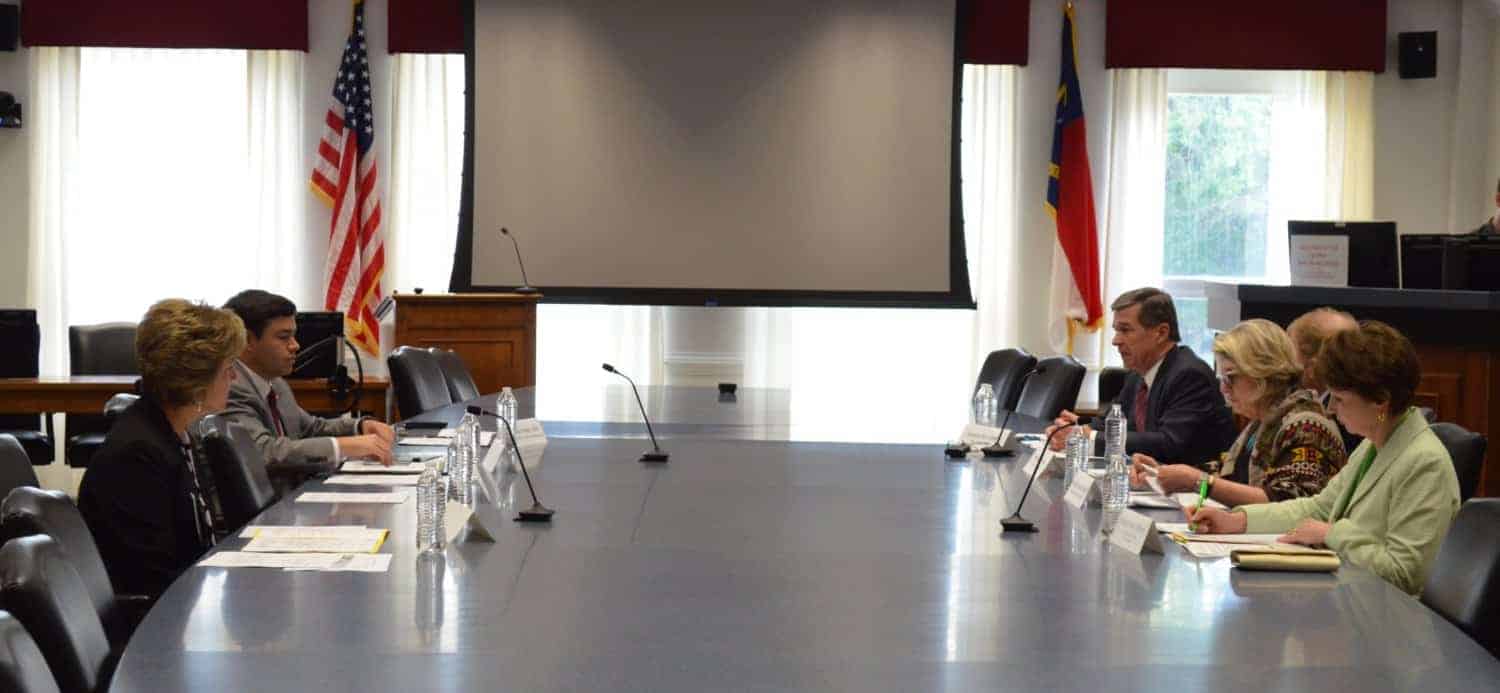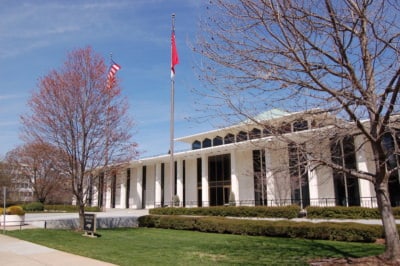With $250,000 from the Bill & Melinda Gates Foundation, Governor Roy Cooper and his education cabinet are planning to tackle the problem of attracting and keeping high-quality teachers in North Carolina schools.
At Tuesday’s education cabinet meeting, the Governor unveiled the plan for recruiting and retaining teachers and heard from two innovative North Carolina programs using partnerships between different education institutions to bolster the teacher pipeline.
Geoff Coltrane, the Governor’s education advisor, explained the plan and told members that a working group has been paying attention to the work of two programs — the Charlotte Teacher Early College and a partnership between North Carolina State University and Johnston County.
“What can we do to take what we’re currently doing and help to beef it up?,” Coltrane said by way of explaining the question driving the working group’s process.
Charlotte Teacher Early College (CTEC) is a cooperative innovative high school on the campus of UNC-Charlotte that started just last year. It is a 9-12 school with an option for students to stay for a 13th grade. Graduates can potentially leave the school with 60 college credit hours and then go on and complete their education degree.
“Students are in college classes with UNC-Charlotte students, taught and graded by UNC-Charlotte faculty,” said Ellen McIntyre, dean of UNC-Charlotte’s School of Education.
Facing a 30 percent decline in student enrollment in teacher preparation programs in the state and a 29 percent decline at UNC-Charlotte over the last five years, CTEC was started as a way of possibly addressing that problem by funneling high schoolers interested in becoming teachers straight into the pipeline.
“We think CTEC is an experiment to see if these trends can be reversed,” McIntyre said.
Forty-nine students enrolled in the school in 2017, almost half of them African-American, 36 percent other ethnic and racial minorities, 31 percent male and 35 percent low income. These are exactly the kinds of teachers schools are looking for in K-12 education, McIntyre said.
The partnership between the North Carolina State College of Education, Johnston County Schools, and Johnston Community College is still in development. It will take a slightly different tact, identifying high school students who might want to become teachers and putting them in a tuition-free dual enrollment program that ends with an Associate Degree in teaching. After that, students can go on to NC State’s teacher preparation program.
David Johnson, president of Johnston Community College, said the program “is evidence of real forward thinking in support of workforce and economic development.”
These two programs are examples of what the education cabinet wants to do statewide: create a system that uses partnerships between educational institutions to bring more students into the teaching profession.
Cooper said that any time he’s in schools now he asks students what they want to be when they grow up. Usually only one or two want to be teachers, and he says he lavishes praise on them.
“I would encourage all of us to talk about that, to encourage young people to do this,” he told his cabinet.
The cabinet’s work to develop partnerships will aim at the following areas, according to the plan handed out at Tuesday’s meeting.
- “Developing a framework for teacher preparation partnerships between high schools, their local community colleges, and/or a local college/university school of education”
- “Enhancing state-level policy supports around dual enrollment and course credit transfer”
- “Providing resources for teacher induction support”
The required components of the partnerships the education cabinet hopes to develop are:
- “Include dual enrollment high school courses and community college and/or four-year college/university courses”
- “Include an option for students to complete their bachelor’s degree in their home communities”
- “Include a certified career pathway focused on teachers, that will include degree paths for both high school and college students and mid-career professionals interested in becoming preK-12 teachers”
- “Ensure the timely completion of a student’s bachelor’s degree with as little debt as possible”


